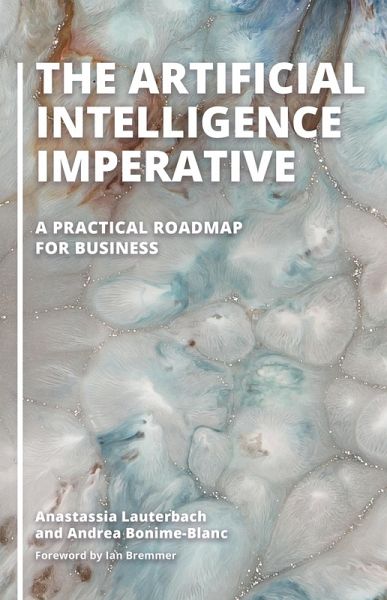
The Artificial Intelligence Imperative (eBook, ePUB)
A Practical Roadmap for Business

PAYBACK Punkte
14 °P sammeln!
This practical guide to artificial intelligence and its impact on industry dispels common myths and calls for cross-sector, collaborative leadership for the responsible design and embedding of AI in the daily work of businesses and oversight by boards. Artificial intelligence has arrived, and it's coming to a business near you. The disruptive impact of AI on the global economy-from health care to energy, financial services to agriculture, and defense to media-is enormous. Technology literacy is a must for traditional businesses, their boards, policy makers, and governance professionals. This i...
This practical guide to artificial intelligence and its impact on industry dispels common myths and calls for cross-sector, collaborative leadership for the responsible design and embedding of AI in the daily work of businesses and oversight by boards. Artificial intelligence has arrived, and it's coming to a business near you. The disruptive impact of AI on the global economy-from health care to energy, financial services to agriculture, and defense to media-is enormous. Technology literacy is a must for traditional businesses, their boards, policy makers, and governance professionals. This is the first book to explain where AI comes from, why it has emerged as one of the most powerful forces in mergers and acquisitions and research and development, and what companies need to do to implement it successfully. It equips business leaders with a practical roadmap for competing and even thriving in the face of the coming AI revolution. The authors analyze competitive trends, provide industry and governance examples, and explain interactions between AI and other digital technologies, such as blockchain, cybersecurity, and the Internet of Things. At the same time, AI experts will learn how their research and products can increase the competitiveness of their businesses, and corporate boards will come away with a thorough knowledge of the AI governance, ethics, and risk questions to ask.













